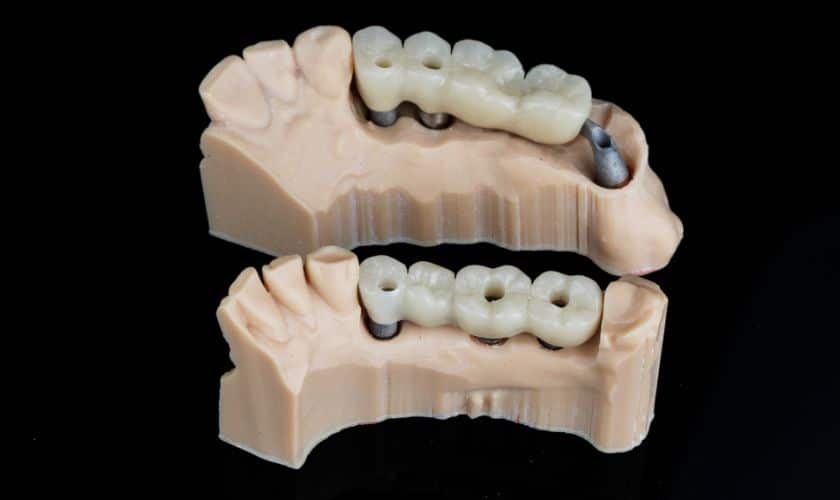
Congratulations on your new dental bridge! Whether you’ve recently undergone a bridge placement procedure or are considering this restorative solution, maintaining proper care is essential for ensuring the longevity and effectiveness of your dental bridge.
Tips to care for your dental bridge:
- Regular Oral Hygiene Practices: Just like natural teeth, dental bridges require consistent oral hygiene. Brush your teeth at least twice a day with a fluoride toothpaste, paying extra attention to the areas around and beneath the bridge. Use a soft-bristled toothbrush to avoid damaging the bridge or irritating your gums.
- Flossing is Key: Flossing becomes even more crucial with a dental bridge. Use dental floss or a bridge threader to clean between the artificial teeth and under the bridge. This helps remove food particles and plaque, preventing potential issues such as decay or gum disease.
- Antimicrobial Mouthwash: Incorporate an antimicrobial or fluoride mouthwash into your oral care routine. Rinsing with an antimicrobial solution helps control bacteria in the mouth, reducing the risk of infection around the bridge and maintaining overall oral health.
- Gentle Cleaning of the Bridge: When cleaning the bridge, be gentle but thorough. Use a non-abrasive, fluoride toothpaste to avoid scratching the bridge’s surface. A careful approach to cleaning ensures the longevity of the bridge and the health of your surrounding teeth and gums.
- Regular Dental Check-ups: Schedule regular dental check-ups with your dentist. Professional cleanings and examinations are crucial for identifying any issues with the dental bridge early on. Your dentist can also provide guidance on proper maintenance and address any concerns you may have.
- Avoid Hard and Sticky Foods: While dental bridges are durable, it’s advisable to avoid biting on hard objects or chewing sticky foods excessively. These can put unnecessary stress on the bridge and may lead to damage or loosening.
- Protect Against Teeth Grinding: If you grind your teeth at night, consider using a nightguard. Teeth grinding (bruxism) can exert excessive force on dental restorations, including bridges, leading to wear and potential complications.
- Quit Smoking: Smoking not only stains the teeth but can also contribute to gum disease, which poses a threat to the stability of dental bridges. Quitting smoking is a positive step toward maintaining the health of your entire oral cavity.
- Address Any Discomfort or Issues Promptly: If you experience any discomfort, pain, or notice changes in the fit of your bridge, consult your dentist promptly. Addressing issues early can prevent further complications and ensure the continued effectiveness of your dental bridge.
Conclusion:
Proper care and maintenance are essential for maximizing the lifespan of your dental bridge. By incorporating these tips into your daily oral hygiene routine and seeking regular professional care, you can enjoy a healthy and functional smile for years to come. Remember, your dentist is your ally in maintaining optimal oral health, so don’t hesitate to reach out if you have any concerns about your dental bridge.
